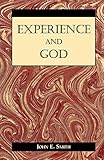Experience and God / John Smith.
Material type: TextSeries: American PhilosophyPublisher: New York, NY : Fordham University Press, [2023]Copyright date: ©1995Description: 1 online resource (209 p.)Content type:
TextSeries: American PhilosophyPublisher: New York, NY : Fordham University Press, [2023]Copyright date: ©1995Description: 1 online resource (209 p.)Content type: - 9780823216246
- 9780823295487
- online - DeGruyter
| Item type | Current library | Call number | URL | Status | Notes | Barcode | |
|---|---|---|---|---|---|---|---|
 eBook
eBook
|
Biblioteca "Angelicum" Pont. Univ. S.Tommaso d'Aquino Nuvola online | online - DeGruyter (Browse shelf(Opens below)) | Online access | Not for loan (Accesso limitato) | Accesso per gli utenti autorizzati / Access for authorized users | (dgr)9780823295487 |
Frontmatter -- Contents -- Acknowledgments -- Preface to the New Edition -- EXPERIENCE and GOD -- Introduction -- I. The Recovery of Experience -- II. The Religious Dimension of Experience and the Idea of God -- III. The Disclosure of God and Positive Religion -- IV. Doubt and Living Reason -- V. The Argument about God -- VI. Experience, Community, and the World Religions -- Epilogue: Religion and Secularization -- Index
restricted access online access with authorization star
http://purl.org/coar/access_right/c_16ec
A modern philosopher described religion as “that region in which all the enigmas of the world are solved.” Smith argues in Experience and God that religion itself has become an enigma for modern man. In the book, smith attempts to reunite philosophy with religion. He argues that in recent decades the prevailing attitude has been chiefly one of indifference. This indifference, leading to the failure of understanding can be overcome only through radical reflection and self-criticism: a re-consideration of the nature of religion, its place in the total structure of human life, and its relations to the secular culture in which the faith of man must live. The task Smith lays out must be of a largely philosophical nature, not only because of the necessity to understand religion in relation to a comprehensive scheme of things, but also because the idea of religion is intimately connected with the issues of metaphysics. Smith’s purpose is to bridge the gap between the ontological approach to God as represented by Augustine, Anselm, and Bonaventure, and the cosmological approach represented by Thomas Aquinas and Albert the Great. Smith shows that, although the two approaches significantly differ, they can be interpreted as ways of leading the meditating mind to the Presence of God, through the soul and through the world.
Mode of access: Internet via World Wide Web.
In English.
Description based on online resource; title from PDF title page (publisher's Web site, viewed 28. Feb 2023)


